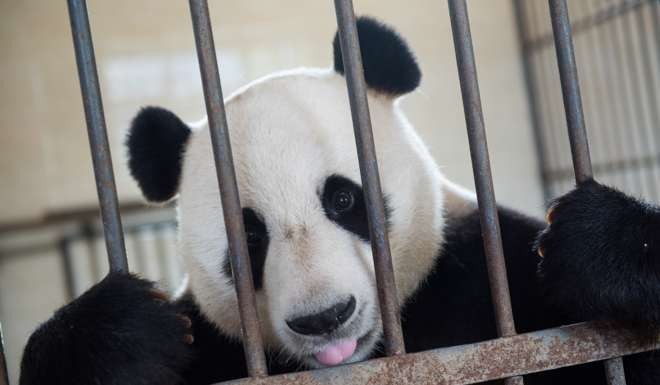
China thinks giant pandas aren’t out of the woods yet
Experts say upgrade from “endangered” to “vulnerable” status may affect future funding
When the conservation status of the giant panda was moved from “endangered” to “vulnerable” at the weekend, conservationists reacted with excitement, viewing it as encouragement for China’s efforts to curb poaching and replant bamboo forests in a nation that doesn’t have a good reputation for protecting wildlife.
But the global celebration of the decision by the International Union for Conservation of Nature was contradicted by a lukewarm response from China.
The improved status of the giant panda on Sunday was expected as the wild population was found to have grown 17 per cent over the past decade.
Simon Stuart, chair of the IUCN Species Survival Commission, told reporters: “This is something to celebrate because it is not a part of the world where we expect this to happen.”
In a statement issued on Monday, the State Forestry Administration said it was too early to change the status, insisting the panda remained “endangered”.
The administration cited the impact of climate change, the “fragmented” habitats of the pandas and limited genetic diversification as the main challenges faced by the much-loved bear.
While those concerns are legitimate, the same administration boasted of its success at a domestic ceremony to mark World Biodiversity Day in May last year.
At the end of 2014, China had 1,864 giant pandas living in the wild, an increase from about 1,100 in 2000, with an additional 422 in captivity. In the 1980s, the total panda population dropped below 1,000 due to poaching and deforestation.

Zhang Xiwu, a senior official at the administration, said panda protection efforts could be a good example to be followed in conserving other species, adding that the success in protecting pandas had improved China’s international reputation for protecting biodiversity.
Some Chinese conservationists have criticised forestry authorities for squandering protection funds on building breeding centres instead of focusing on wild habitats, which are more critical for the pandas’ survival.
Xu Haigen, a researcher with the Ministry of Environmental Protection’s research institute in Nanjing, said the upgrade to the pandas’ status could lead to a drop in protection funding.
But the announcement from the IUCN was still met with a positive response from conservation agencies, such as WWF.

